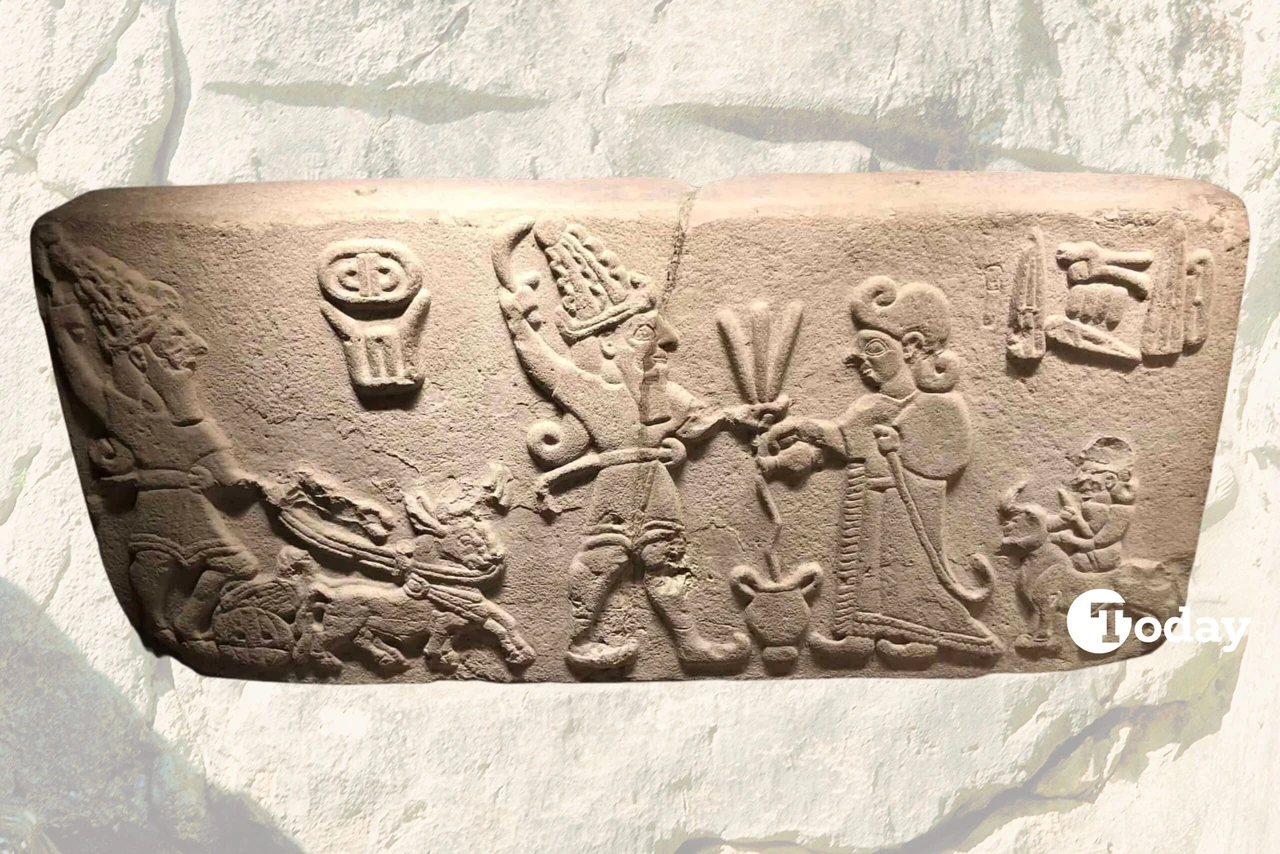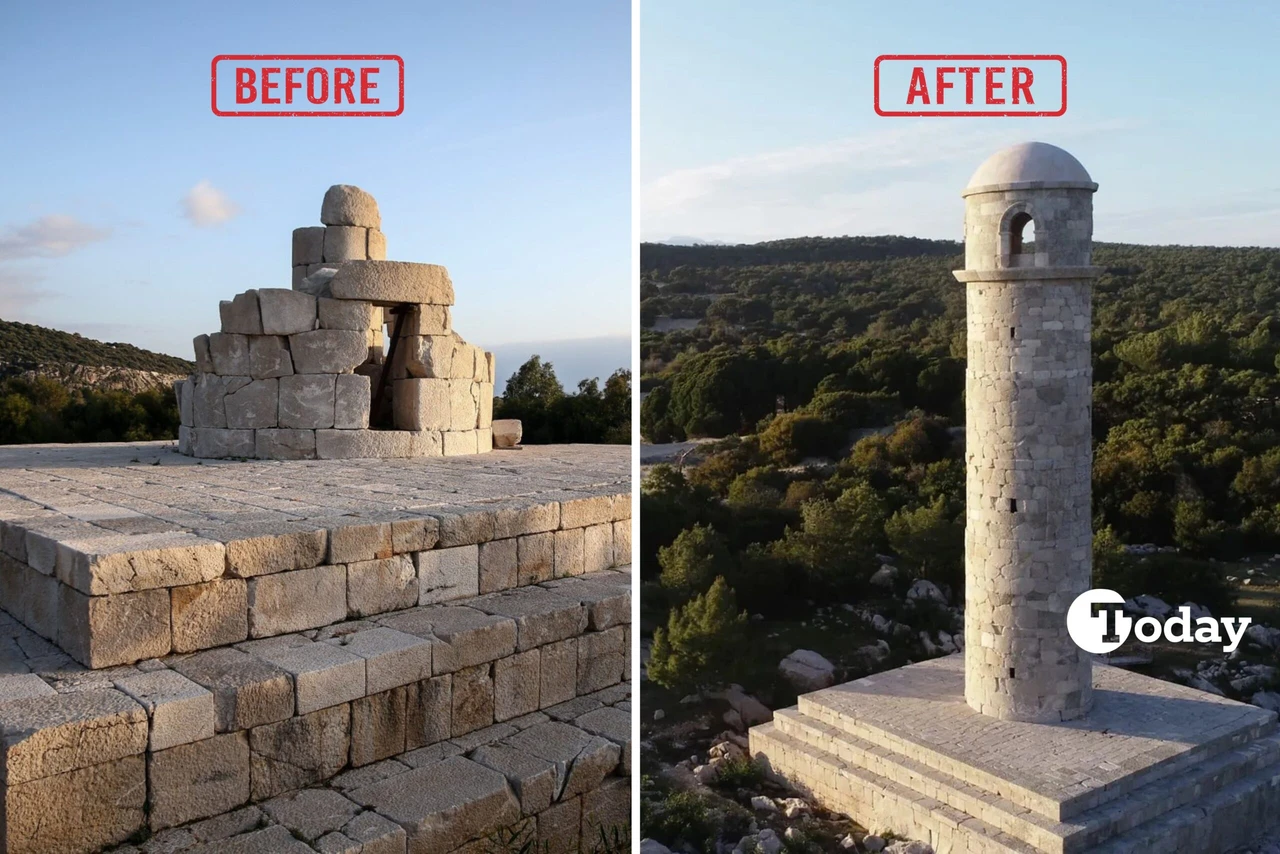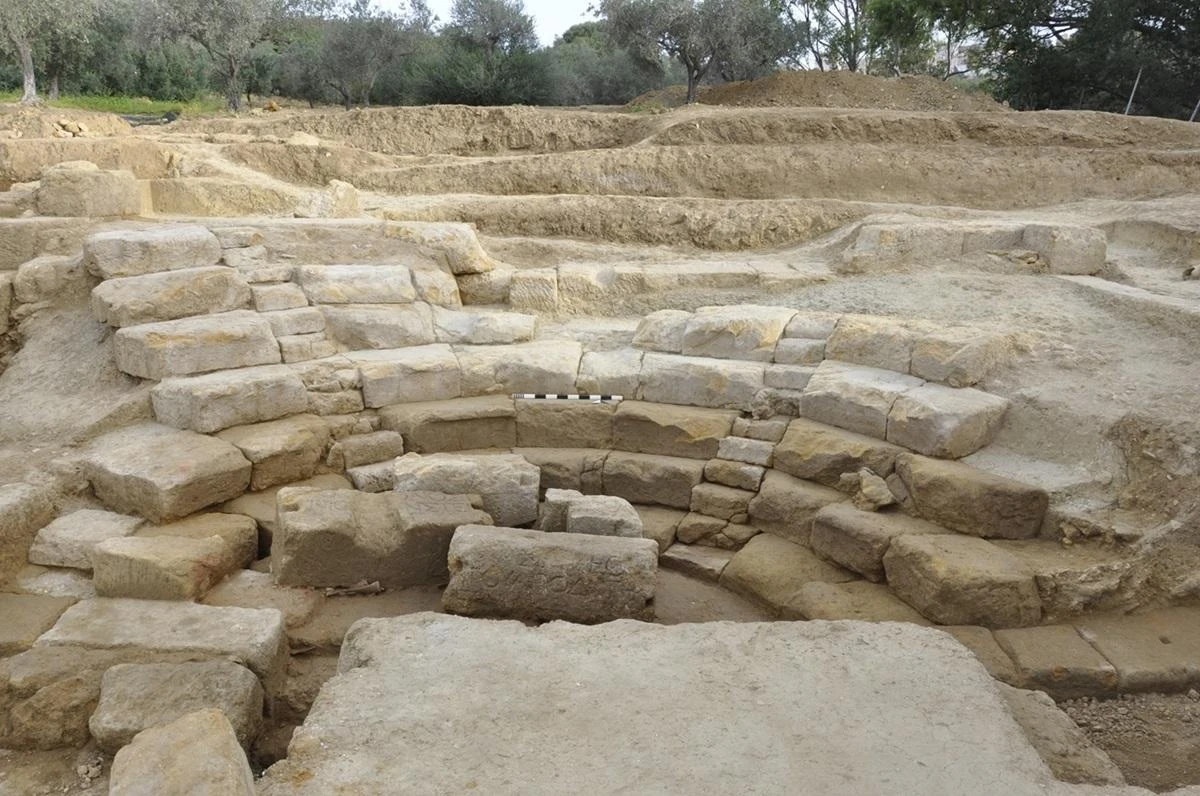Diaspora archaeologist strives to preserve mudbrick houses in Türkiye’s village Zile
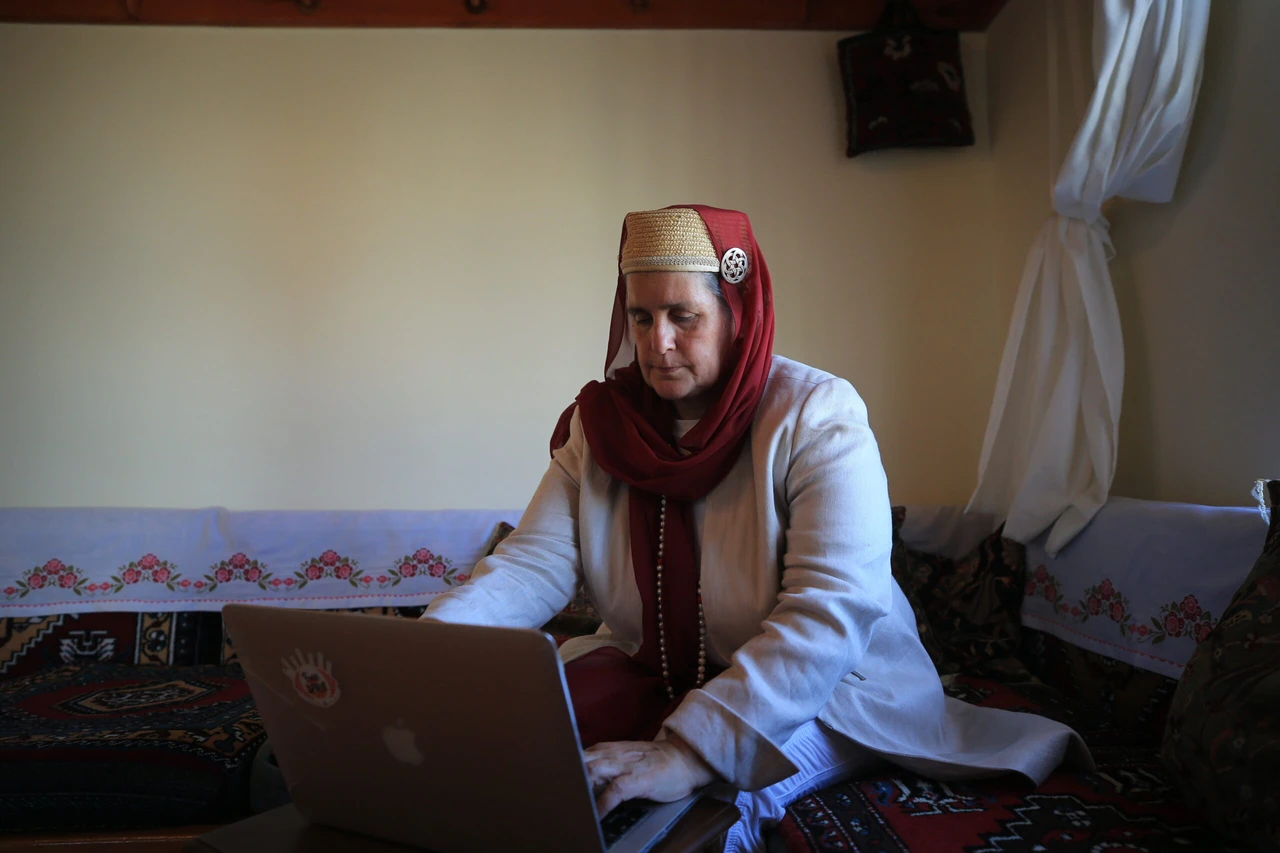 Archaeologist Bilgehan Kohler works to preserve historical adobe houses in Kayseri, Türkiye, July 15, 2024 (Photo by AA Photo)
Archaeologist Bilgehan Kohler works to preserve historical adobe houses in Kayseri, Türkiye, July 15, 2024 (Photo by AA Photo)
Fifty-five-year-old Bilgehan Kohler, who was born and raised in Germany and now lives in Switzerland, is committed to preserving the historic mudbrick houses in her ancestral village of Zile, Kayseri.
Kohler, a seasoned archaeologist born and raised in Germany, has dedicated herself to preserving mudbrick houses in the rural village of Zile in Kayseri’s Develi district.
Despite her extensive academic career abroad, Kohler’s deep-rooted connection to her heritage has led her to restore and maintain these traditional structures.
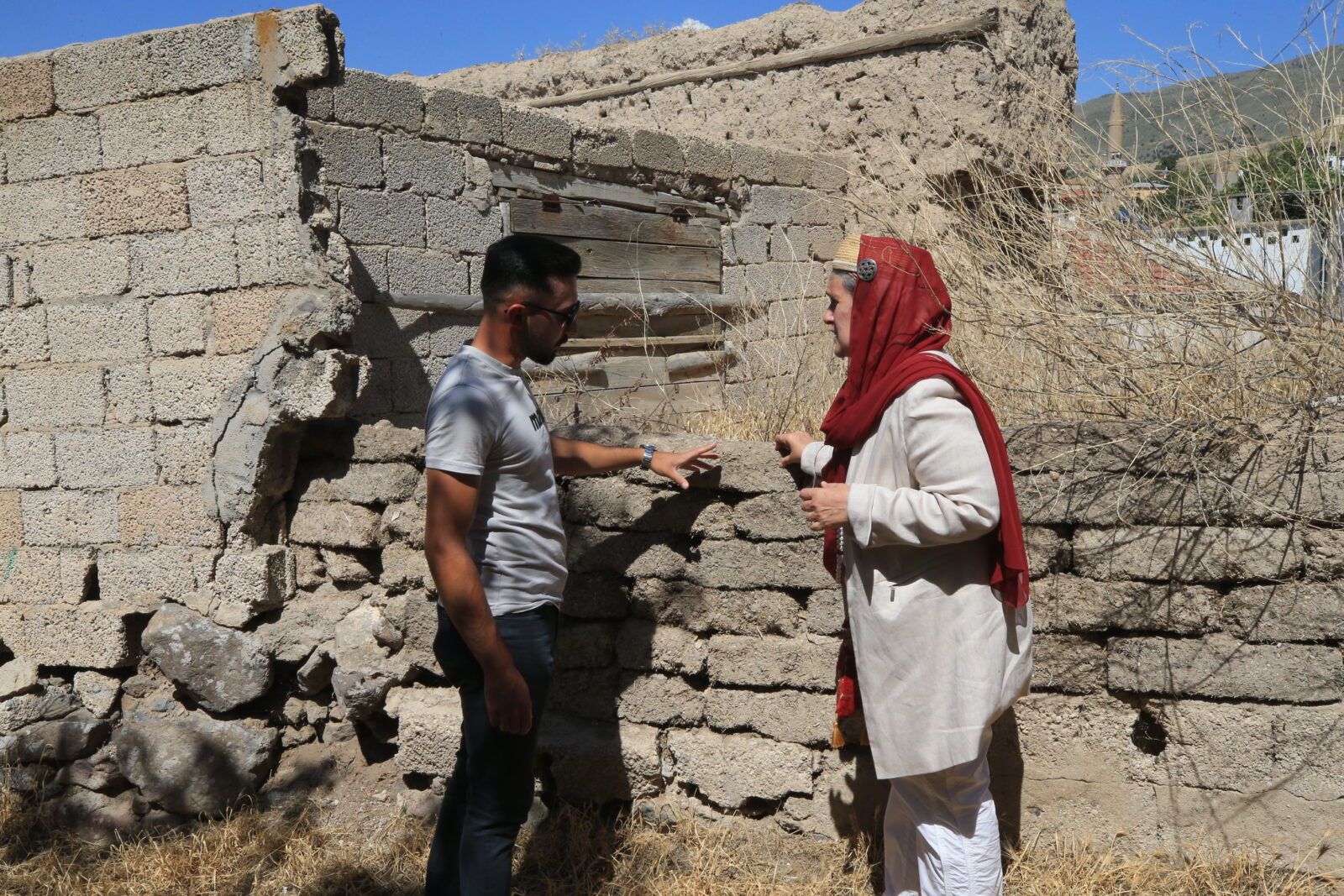
Passion for heritage, preservation
Kohler, who has participated in significant excavations and worked in museology in Germany, frequently returns to Zile to restore mudbrick houses, including her grandmother’s home and two other properties she has acquired.
“Our villages are exceptional. Zile is the most fascinating village in this region with its unparalleled mudbrick architecture. As an archaeologist, I am very sensitive about historical preservation. The most valuable and beautiful things in Zile are being destroyed, which saddens me deeply,” Kohler explained.
Organizing, international mudbrick symposium
Kohler has partnered with Nuh Naci Yazgan University to organize a symposium in September to raise awareness about the importance of mudbrick houses.
She plans to bring a professor specializing in urban studies from the United States to the event. “We want to convey the value of mudbrick houses to our people once again and aim to include them in UNESCO,” she stated.
Kohler emphasized that mudbrick is considered a sustainable and economical building material in the West, often referred to as ‘the material of the future.’

Upholding Turkish-Islamic culture
Despite being born in Germany, Kohler has remained deeply connected to Turkish-Islamic culture.
“I travel the world wearing traditional Turkish attire that I have designed, reflecting our national dress. I live and breathe this culture,” she shared.
Kohler’s mother, who taught Turkish children in Germany, played a significant role in instilling this cultural pride in her.
Significance of sustainable materials
Kohler highlighted the importance of sustainable materials like mudbrick in the construction industry, particularly in the West.
“Concrete is expensive to produce and cannot be reused once it breaks, whereas mudbrick is both economical and easy to renovate. In fact, it’s being called ‘the material of the future’ in the West. Let’s not forget that concrete is out, and mudbrick is in,” she noted.
Kohler’s mission is to preserve the mudbrick houses of Zile and pass this heritage on to future generations. Her efforts are aimed at protecting these structures and getting them recognized by UNESCO.
Kohler’s work in Zile safeguards Anatolia’s rich cultural heritage. The recognition of mudbrick as a sustainable and valuable material underscores the importance of preserving these historic buildings for future generations.
